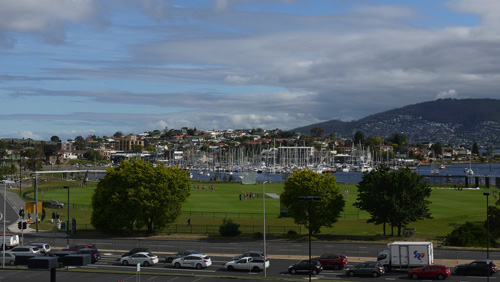Tasmania became the sixth Australian state to announce that they will be introducing a point of consumption tax on net wagering revenues. This 15% tax will be imposed on betting companies and will take effect on January 1, 2020.
 This tax was officially announced by Peter Gutwein, Treasurer for the Australian state. In a release, he stated, “Following consultation with industry stakeholders, it has been determined the Point of Consumption Tax will be set at a rate of 15 percent of the net wagering revenue of betting companies and will exclude the face value of free bets provided to bettors.”
This tax was officially announced by Peter Gutwein, Treasurer for the Australian state. In a release, he stated, “Following consultation with industry stakeholders, it has been determined the Point of Consumption Tax will be set at a rate of 15 percent of the net wagering revenue of betting companies and will exclude the face value of free bets provided to bettors.”
The Treasurer explained that the rate is consistent with the other five jurisdictions that are imposing the tax. There will also be a tax-free threshold of $150,000 in betting turnover.
Despite his assurances of equality, those involved in the racing and wagering industries have slammed this tax as excessive. In a statement by Nick Minchin, Chairman of the Responsible Wagering Australia group, he explained that “This tax is almost double that introduced by Victoria’s Labor Government and the Tasmanian Liberal Government now holds the dubious honor of taxing Tasmanians at a higher rate than any other Australian state.”
Minchin explained that a similar tax had been imposed in South Australia, and had nearly crippled the racing industry there. “The 15% Point of Consumption Tax introduced in South Australia threw a handbrake on that State’s racing industry and has almost brought it to its knees. In South Australia, prize money has been cut, field sizes have shrunk, participants have fled interstate and jobs have been lost.”
He added that “Starting off a much lower base, the Tasmanian Government has today put that same handbrake onto Tasmanian racing and thrown its future into massive uncertainty.”
Despite the opposition, Tasmania is ready to move forward. They are expecting that this tax will generate additional revenue of $5 million per year. In addition, members of the state government have been quick to point out that this tax was first proposed in May with little fanfare or debate against it. Now that it is close to being implemented, they point out that the criticism has now arisen.
Tasmania is Australia’s smallest state. As such, they are frequently in the lower end of tax revenues that are generated. This new tax they hope will help to bring them closer to the revenues that are necessary for them to run a more efficient government.